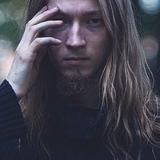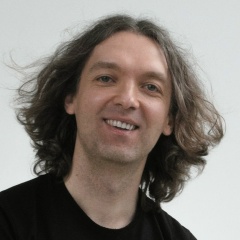Подготовка к экзамену. Сомневаетесь ли вы в чувствовании реальности. История безумия в классическую эпоху. Что вы об этом скажете? Cogito включается в безумие. Cogito существует в безумии. Cogito - универсальный опыт, который присутствует и в безумии и во сне. Может ли cogito высказаться в безумии? Можно ли представить безумие в котором нет cogito? Башиляр предлагает такой случай, связанный со сном. Опыт присутствия, когда нет cogito. Вы видели сны, но всё забыли. И существуют сны без сюжета.
Башиляр использует состояние сна против cogito.
Башиляр анализирует воображаемое и разум. Книга "Поэтика сновидений". Мы становимся существование без истории. Спим в глубоких водах, иногда бывают волнения , но никогда не бывает течений.
Чувствуете ли вы, как вы занимаете пространство? Можете ли вы передать душе существование без мысли?
Что вы находите в критике прикладного рационализма?
Критика с точки зрения воображаемого. Дневной и ночной человек. Наиболее глубинное существо воображаемого не имеет гарантии существования в cogito!
Если мы спим как камень свинцовым сном? Здесь есть опыта существования себя, но нет cogito. Нужен опыт. Что насчёт опыта существования животного? Себя-животного. Для Декарта - животное это машина. Но посмотрите не на муху или кузнечика, посмотрите на корову и это будет решительно не машина, отнимите у коровы телёнка - она будет плакать. Либо корова думает и у неё есть опыт cogito и тогда у неё есть душа. А если не думает, то машина. Можно ли приписать какой либо опыт без cogito животному? Ладно.
Вода ассоциируется с сомнением. Вдруг вы упали в глубокую воду, и не можете встать на дно или удержаться на поверхности. Сомнение предшествует cogito.
Злокозненный гений всё делает иллюзорным. Злокозенный гений убирает небо, убирает землю, убирает воздух, убирает звуки. Но не убирает воду. Вода остаётся. Декарт погружается в сомнение прежде, чем сформулировать cogito. Сомнение во всем - это абстракция. Волюнтаристкий подход.
Cogito позволяет добраться до земной тверди, в которую мы посадим дерево философии. Движение в cogito, исключение воды (сомнения), cogito обосновывается на земной тверди и исключает воду. Как же преобразуется морской берег?
Оно думает во мне. Что заставляет меня думать? Откуда происходят мои мысли? Они анонимны и индивидуальны. Есть мысль. И в этой мысли есть нечто, что думает. "Я думаю" или "это думает" мало что меняет для cogito.
Феноменология вынуждена рассматривать сон как реальность. Рассказывая сон сам узнаёшь новые детали. Но мы вынуждены отрицать ретроспективный характер описания сна.
Мерло-Понти, Морис
Башиляр использует состояние сна против cogito.
Башиляр анализирует воображаемое и разум. Книга "Поэтика сновидений". Мы становимся существование без истории. Спим в глубоких водах, иногда бывают волнения , но никогда не бывает течений.
Чувствуете ли вы, как вы занимаете пространство? Можете ли вы передать душе существование без мысли?
Что вы находите в критике прикладного рационализма?
Критика с точки зрения воображаемого. Дневной и ночной человек. Наиболее глубинное существо воображаемого не имеет гарантии существования в cogito!
Если мы спим как камень свинцовым сном? Здесь есть опыта существования себя, но нет cogito. Нужен опыт. Что насчёт опыта существования животного? Себя-животного. Для Декарта - животное это машина. Но посмотрите не на муху или кузнечика, посмотрите на корову и это будет решительно не машина, отнимите у коровы телёнка - она будет плакать. Либо корова думает и у неё есть опыт cogito и тогда у неё есть душа. А если не думает, то машина. Можно ли приписать какой либо опыт без cogito животному? Ладно.
Вода ассоциируется с сомнением. Вдруг вы упали в глубокую воду, и не можете встать на дно или удержаться на поверхности. Сомнение предшествует cogito.
Злокозненный гений всё делает иллюзорным. Злокозенный гений убирает небо, убирает землю, убирает воздух, убирает звуки. Но не убирает воду. Вода остаётся. Декарт погружается в сомнение прежде, чем сформулировать cogito. Сомнение во всем - это абстракция. Волюнтаристкий подход.
Cogito позволяет добраться до земной тверди, в которую мы посадим дерево философии. Движение в cogito, исключение воды (сомнения), cogito обосновывается на земной тверди и исключает воду. Как же преобразуется морской берег?
Оно думает во мне. Что заставляет меня думать? Откуда происходят мои мысли? Они анонимны и индивидуальны. Есть мысль. И в этой мысли есть нечто, что думает. "Я думаю" или "это думает" мало что меняет для cogito.
Феноменология вынуждена рассматривать сон как реальность. Рассказывая сон сам узнаёшь новые детали. Но мы вынуждены отрицать ретроспективный характер описания сна.
Мерло-Понти, Морис
Exam preparation. Do you doubt the feeling of reality. The story of madness in the classical era. What do you say about this? Cogito gets involved in insanity. Cogito exists in madness. Cogito is a universal experience that is present in both madness and sleep. Can a cogito speak out in madness? Is it possible to imagine a madness in which there is no cogito? Bashilyar offers such a case related to sleep. Experience presence when there is no cogito. You saw dreams, but you forgot everything. And there are dreams without a plot.
The bashillar uses a state of sleep against a cogito.
The bashillar analyzes the imaginary and the mind. The book "Poetics of Dreams." We become existence without history. We sleep in deep waters, sometimes there are unrest, but there are never currents.
Do you feel like you are occupying space? Can you convey to the soul existence without thought?
What do you find in criticism of applied rationalism?
Criticism from the point of view of the imaginary. Day and night person. The deepest imaginary creature has no guarantee of existence in a cogito!
Should we sleep like a stone with a leaden sleep? There is an experience of the existence of oneself, but no cogito. Need experience. What about animal experience? Himself an animal. For Descartes, an animal is a machine. But look not at the fly or the grasshopper, look at the cow and it will definitely not be a machine, take away the calf from the cow - it will cry. Or the cow thinks and she has experience cogito and then she has a soul. And if you don’t think, then a car. Is it possible to attribute any experience without a cogito to an animal? Okay.
Water is associated with doubt. Suddenly you fell into deep water, and you can not get to the bottom or stay on the surface. Doubt precedes cogito.
An insidious genius does everything illusory. The evil genius cleans the sky, cleans the earth, cleans the air, removes sounds. But does not remove water. Water remains. Descartes goes into doubt before formulating a cogito. Doubt in everything is an abstraction. Voluntary approach.
Cogito allows you to get to the earth's firmament, into which we plant a tree of philosophy. Movement in the cogito, exclusion of water (doubt), the cogito settles on the earth's firmament and excludes water. How is the seashore transformed?
It thinks in me. What makes me think? Where do my thoughts come from? They are anonymous and individual. There is a thought. And in this thought there is something that thinks. “I think” or “think it” makes little difference to the cogito.
Phenomenology is compelled to consider a dream as a reality. By telling a dream you will learn new details. But we are forced to deny the retrospective nature of the description of sleep.
Merlot Ponti, Maurice
The bashillar uses a state of sleep against a cogito.
The bashillar analyzes the imaginary and the mind. The book "Poetics of Dreams." We become existence without history. We sleep in deep waters, sometimes there are unrest, but there are never currents.
Do you feel like you are occupying space? Can you convey to the soul existence without thought?
What do you find in criticism of applied rationalism?
Criticism from the point of view of the imaginary. Day and night person. The deepest imaginary creature has no guarantee of existence in a cogito!
Should we sleep like a stone with a leaden sleep? There is an experience of the existence of oneself, but no cogito. Need experience. What about animal experience? Himself an animal. For Descartes, an animal is a machine. But look not at the fly or the grasshopper, look at the cow and it will definitely not be a machine, take away the calf from the cow - it will cry. Or the cow thinks and she has experience cogito and then she has a soul. And if you don’t think, then a car. Is it possible to attribute any experience without a cogito to an animal? Okay.
Water is associated with doubt. Suddenly you fell into deep water, and you can not get to the bottom or stay on the surface. Doubt precedes cogito.
An insidious genius does everything illusory. The evil genius cleans the sky, cleans the earth, cleans the air, removes sounds. But does not remove water. Water remains. Descartes goes into doubt before formulating a cogito. Doubt in everything is an abstraction. Voluntary approach.
Cogito allows you to get to the earth's firmament, into which we plant a tree of philosophy. Movement in the cogito, exclusion of water (doubt), the cogito settles on the earth's firmament and excludes water. How is the seashore transformed?
It thinks in me. What makes me think? Where do my thoughts come from? They are anonymous and individual. There is a thought. And in this thought there is something that thinks. “I think” or “think it” makes little difference to the cogito.
Phenomenology is compelled to consider a dream as a reality. By telling a dream you will learn new details. But we are forced to deny the retrospective nature of the description of sleep.
Merlot Ponti, Maurice
У записи 1 лайков,
0 репостов.
0 репостов.
Эту запись оставил(а) на своей стене Наима Джошуа






















